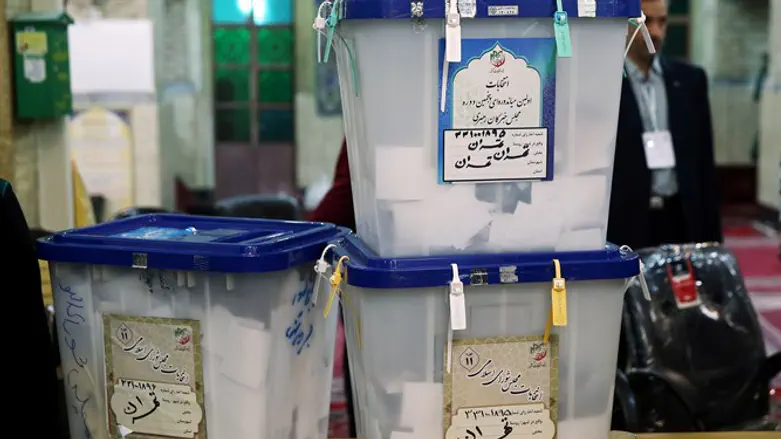
Iran's interior ministry on Sunday said that voter turnout in Friday’s parliamentary elections stood at 42.57%, the lowest ever in decades, according to The Associated Press.
In comparison, turnout was nearly 62% in the 2016 elections. Turnout has consistently been above 50% since the country's Islamic Revolution some four decades ago.
Iran's hard-liners won all 30 parliamentary seats in Tehran, state TV reported Sunday.
Iran's Supreme Leader and other senior officials had urged people to cast their ballots Friday as a show of resistance in the face of US sanctions that have plunged the economy into recession.
Voters had limited options on Friday's ballot, as more than 7,000 potential candidates had been disqualified, most of them reformists and moderates.
The disqualifications angered President Hassan Rouhani, who warned of threats to the Islamic Republic's "democracy and national sovereignty".
Among those disqualified were 90 sitting members of Iran's 290-seat parliament who had wanted to run for re-election, noted AP.
They were disqualified by the Guardian Council, which oversees Iran's elections and is charged with vetting candidates. In 2017, for example, it disqualified former President Mahmoud Ahmadinejad from running for president.
The lower turnout is widely seen as a measure of how Iranians view their government. Some voters who chose not to cast ballots expressed apathy in the process and said the government had been unable to stymie the effects of punishing US sanctions on the country.
Interior Minister Abdolreza Rahmani Fazli said the lowest turnout from the vote was in the capital, Tehran, with just 25.4% of eligible voters casting ballots. He said the country voted under less-than-ideal circumstances, and pointed to the spread of the virus as one example, but said nevertheless, "we believe that the number of votes and the turnout is absolutely acceptable."
Rouhani said the mass disqualifications were akin to customers being told they have options but being offered just one brand at a store. Still, in the days leading up to the election, he joined the chorus of official voices urging people to vote.
Despite being touted as a “moderate” reformist, Iran has set new records under Rouhani’s presidency in the number of executions, many for political or religious "crimes".
He has also done little in the way of freeing reformist political leaders who were jailed after protesting the 2009 election and in stopping the limitations on freedom of speech in Iran, despite having openly criticized it.
